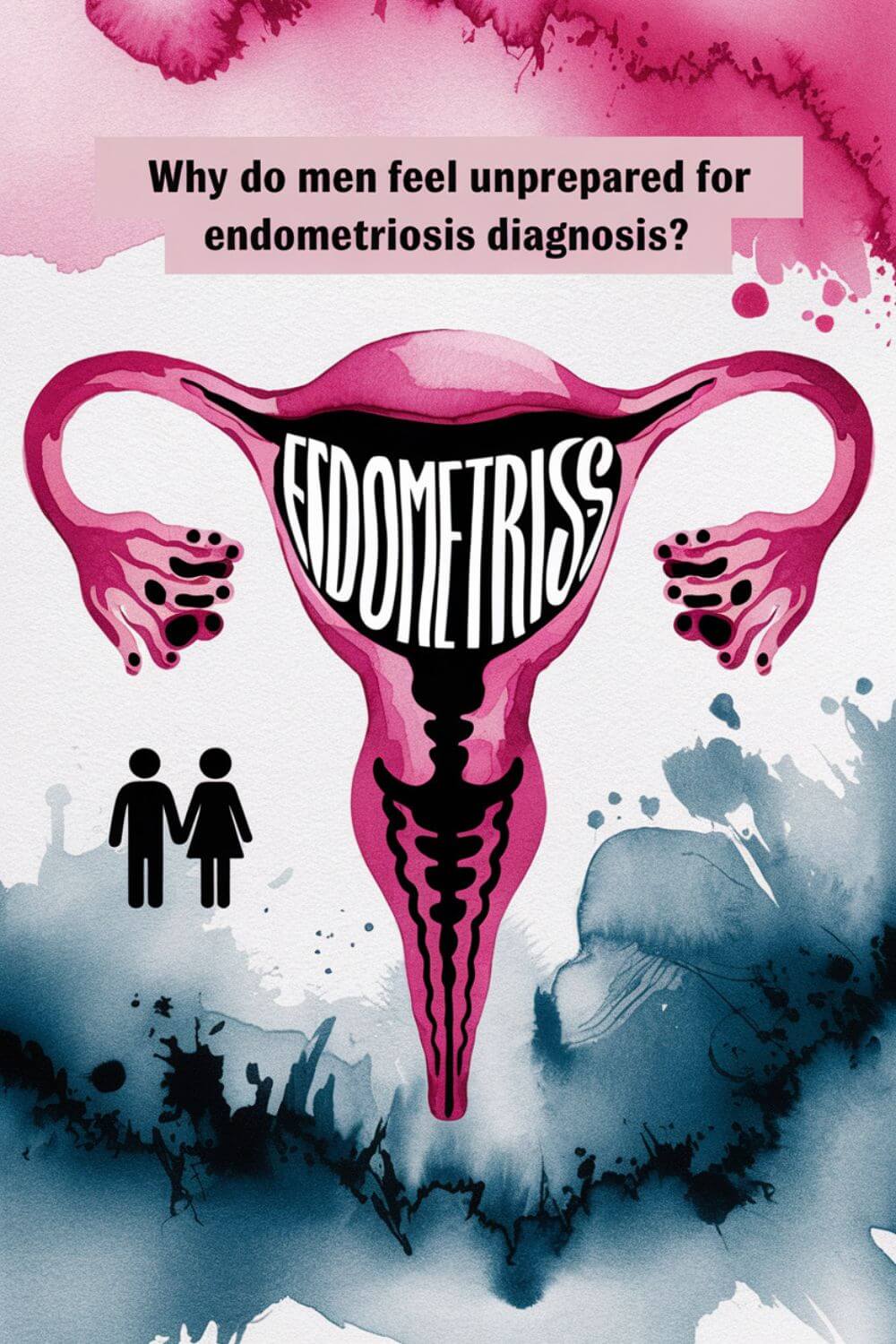Why Do Men Feel Unprepared for Endometriosis Diagnosis?
As I sat beside my wife, holding her hand tightly, the doctor’s words echoed in my mind: “She has endometriosis.” At that moment, I felt a wave of uncertainty wash over me. I knew endometriosis was a chronic, painful condition that affected women, but I had no idea how to support my partner through this life-altering diagnosis. A few years after I began to question why men feel unprepared for endometriosis diagnosis, as I was one of them. This realization that I was woefully unprepared to navigate this new challenge left me feeling overwhelmed and helpless.
Endometriosis is a complex gynecological disorder that impacts an estimated 176 million women worldwide. It occurs when the endometrial tissue, which normally lines the inside of the uterus, grows outside the uterus on other organs. This can lead to severe pain, heavy periods, and a host of other debilitating symptoms.
While endometriosis mainly affects women, it can also have a significant impact on their male partners, who often struggle to understand the condition and its far-reaching implications.
According to a recent study, many men feel unprepared for their partner’s endometriosis diagnosis, lacking the knowledge and resources to effectively support them. This knowledge gap can be detrimental, as endometriosis can have a profound impact on a couple’s relationship, intimacy, and plans for the future.
In this article, we’ll explore why men often feel unprepared for an endometriosis diagnosis and provide strategies for supporting loved ones navigating this chronic health issue. By shedding light on the unique challenges faced by male partners, we can work towards a more inclusive and empathetic understanding of endometriosis.
- The Emotional Burden of Endometriosis
- Men's Role in Understanding Endometriosis
- The Impact of Endometriosis on Relationships
- Gender Disparities in Healthcare
- The Importance of Open Communication
- Men unprepared for endometriosis diagnosis
- Coping Strategies for Men
- The Role of Healthcare Providers
- Endometriosis and Infertility
- The Power of Support Groups
- Breaking the Stigma
- Endo-Tool: Endometriosis for Men
- Moving Forward Together
- Source Links to Why Men Feel Unprepared for Endometriosis Diagnosis
The Emotional Burden of Endometriosis
Getting an [https://worryhead.com/men-dont-understand-endometriosis/] endometriosis diagnosis is very hard for women and their partners. The sudden loss of fertility that comes with it can be overwhelming. It’s like a grief that no one really understands.
Men may find it hard to deal with this loss too. This makes things even tougher for their partners, adding to their emotional pain and [https://worryhead.com/men-dont-understand-endometriosis/] mental health issues.
Disenfranchised grief and the unexpected loss of fertility
Endometriosis can also mess with relationships. Couples face changes in intimacy, chronic pain, and uncertainty about having kids. It can affect daily life, work, household tasks, social lives, and childcare, adding stress to relationships.
People with endometriosis may feel the financial and emotional toll on their relationships. It can limit their social lives, leading to feelings of loss and strained bonds.
Finding the right treatment for endometriosis is a constant fight, causing frustration for both partners. They might disagree on how to treat it, making it hard to feel together in healthcare decisions.
Pain during or after sex (dyspareunia) due to endometriosis can hurt relationships. Fertility problems linked to endometriosis can also strain relationships and add to the anxiety of planning a family.
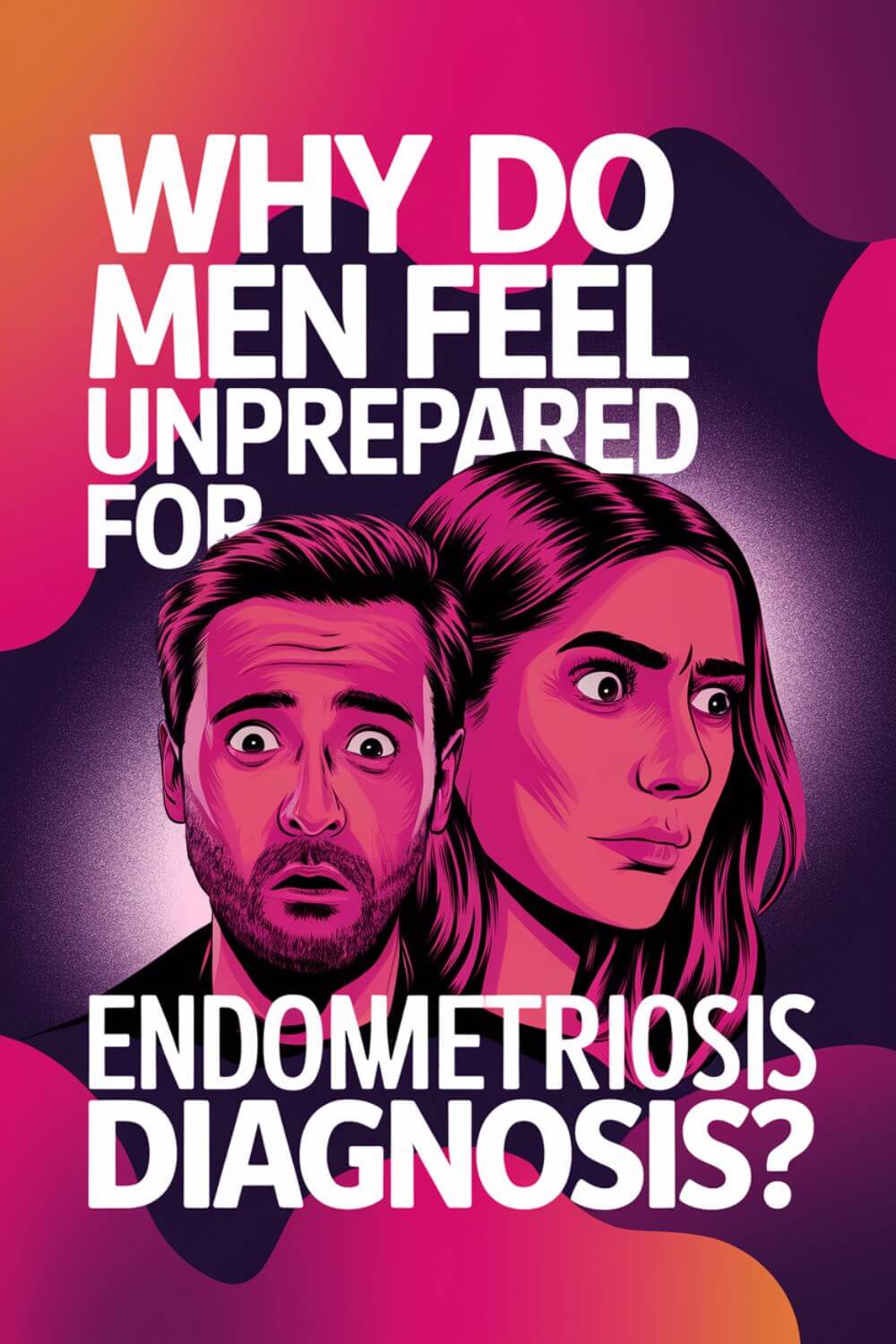
Men’s Role in Understanding Endometriosis
Men are key supporters for women with endometriosis. Yet, many men don’t know much about this chronic condition. This lack of knowledge can make them feel helpless and frustrated. It’s important for men to learn about the symptoms, treatments, and effects of endometriosis to offer real support.
Supporting loved ones with endometriosis: A shared journey
Men can be great allies in their partners’ fight against endometriosis. They can learn about the condition, understand its emotional and physical effects, and help their partner get the right care. A study shows that women face unique challenges in getting diagnosed and treated for endometriosis.
Men can help their partners in many ways:
- Researching endometriosis and its symptoms and impacts
- Going to doctor’s appointments and asking questions
- Being there emotionally, listening, and showing empathy
- Helping navigate the healthcare system and advocate for their partner
- Creating a supportive home environment
By understanding and participating in the journey, men can greatly help their partners. They can make a big difference in their partner’s life and help them manage endometriosis better.
| Statistic | Value |
|---|---|
| Endometriosis affects an estimated 10 – 15% of individuals with a uterus at reproductive age | 10 – 15% |
| On average, it takes 7.5 years for individuals with endometriosis to receive an accurate diagnosis | 7.5 years |
| Studies suggest a severe lack of education on endometriosis within both the medical community and the general public | Severe lack of education |
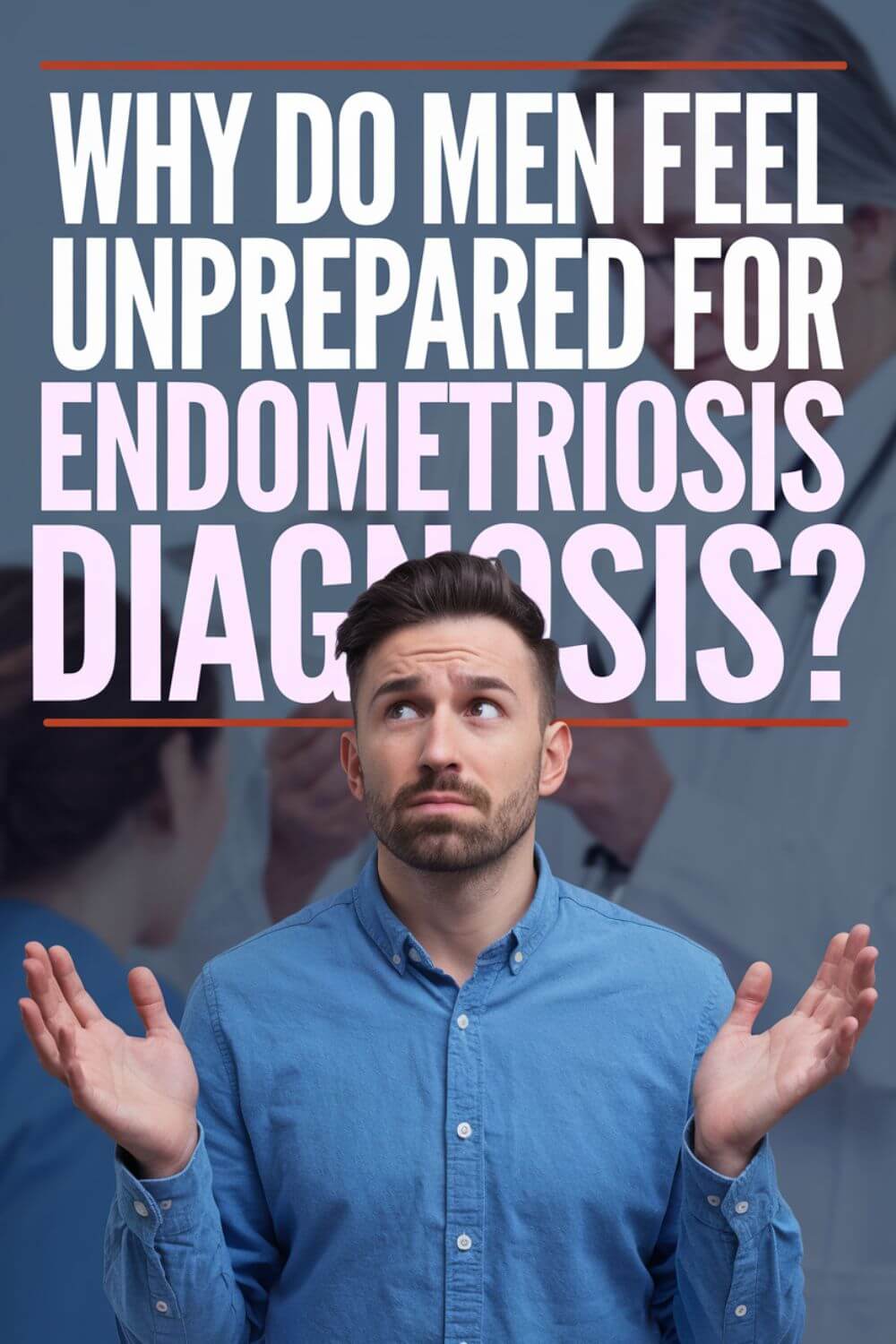
The Impact of Endometriosis on Relationships
Endometriosis can deeply affect romantic relationships. It brings relationship challenges, changes in intimacy, and communication barriers. These issues can put a strain on even the strongest partnerships.
Men may find it hard to understand their partner’s pain, leading to misunderstandings and resentment. Couples face tough topics like changing intimacy, family planning, and managing a chronic condition. A study showed that advice to get pregnant can harm patients’ lives, including their mental health and relationships.
Communication is vital in these situations. Open talks and seeking professional help can help couples deal with endometriosis. The disease’s impact on relationships, from the male perspective, shows their emotional struggles. Men often lack awareness and struggle to support their partners emotionally and physically.
Managing endometriosis in relationships highlights the need for support, empathetic listening, and open communication. These are key to strengthening the bond between partners as they face this chronic condition together.
| Endometriosis Impact on Relationships | Percentage |
|---|---|
| Strain on intimacy | 84% |
| Challenges in communication | 78% |
| Negative impact on family planning | 72% |
Gender Disparities in Healthcare
Women with endometriosis often face big challenges in healthcare. This condition affects about 190 million people worldwide. It’s often not taken seriously by doctors, leading to late diagnoses and poor treatment.
Many people, including men, don’t know much about endometriosis. This lack of knowledge affects both the medical field and the public.
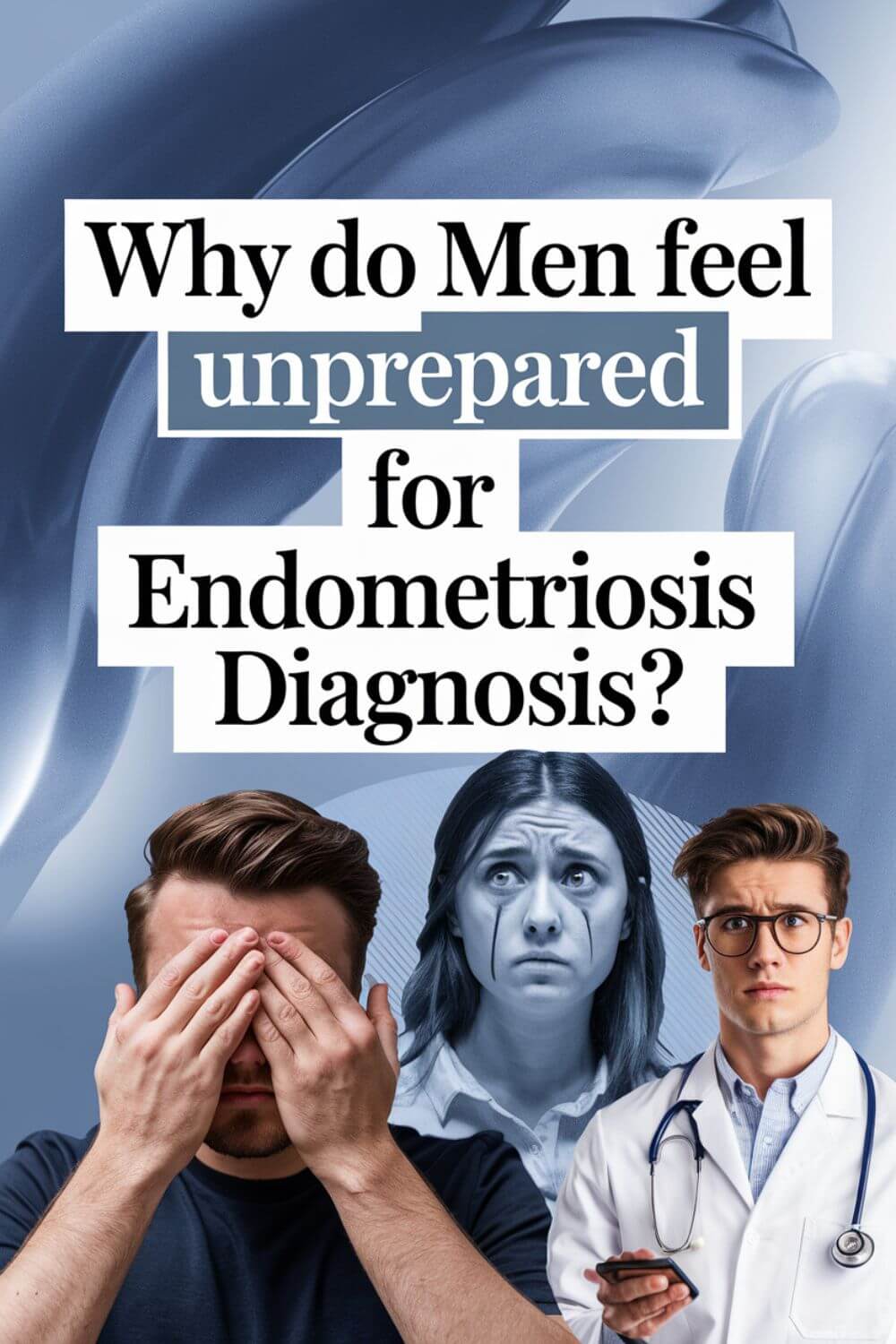
Addressing the Lack of Endometriosis Awareness and Education
To fix these issues, we need better education for doctors. Studies show women are often misdiagnosed or have their pain ignored. Instead of pain meds, they might get sedatives.
This bias causes big delays in getting the right treatment. We also need more public awareness to fight the stigma around endometriosis.
By tackling gender bias and boosting awareness, we can help patients and doctors talk more openly about endometriosis. This could lead to quicker diagnoses, better care, and a deeper understanding of the condition’s impact.
The Importance of Open Communication
Dealing with endometriosis means we must talk openly with each other. As a supportive partner, listening to my partner’s feelings and experiences is key. We must also make decisions together about treatment and managing the condition. Good communication helps us understand how endometriosis affects our relationship and plans for the future.
Talking about these tough topics can be hard. But, getting help from doctors, counselors, or support groups can make it easier. Working together, we can find ways to meet both our needs, supporting each other every step of the way.
Open talk is the base for giving emotional support and making shared decisions on our endometriosis path. By focusing on these communication strategies, we can make our bond stronger and tackle this tough time together.
| Communication Strategies | Benefits |
|---|---|
| Active Listening | Helps partners feel heard and understood |
| Empathetic Responses | Fosters emotional support and validation |
| Collaborative Decision-Making | Ensures both partners’ needs are addressed |
| Seeking External Support | Provides guidance and resources for communication |

Men unprepared for endometriosis diagnosis
Getting a diagnosis of endometriosis can be a shock for many men. They often don’t know much about it. This lack of knowledge makes it hard for them to support their partners through the tough times ahead.
The emotional toll of endometriosis, like the fear of losing fertility, is hard for men to handle. They feel helpless and unsure of how to help. This can make them feel left out and unsure of how to support their partners.
When a partner gets diagnosed with endometriosis, it changes the relationship a lot. Men struggle to accept these changes. They worry about their future family plans and how this might affect them.
It’s important for men to learn about endometriosis. Knowing about it helps them understand what their partner is going through. This knowledge lets them support their partner better and make informed decisions together.
Even though dealing with endometriosis is tough, men need to take care of themselves too. They should talk to counselors, join support groups, and take care of their own mental health. This way, they can support their partners better and build a stronger relationship together.
Coping Strategies for Men
When a partner gets diagnosed with endometriosis, it can be a big shock for men. This condition mainly affects those who menstruate. But, it also affects their loved ones emotionally and practically. To deal with this, men need to find emotional support and use practical strategies.
Emotional Support and Self-Care
Men dealing with their partner’s endometriosis can really benefit from emotional support. Counseling, alone or together, helps them understand their feelings and the condition better. Support groups, online or in-person, offer a community and shared experiences.
Self-care is key for men supporting a partner with endometriosis. This can mean exercise, meditation, or just taking time for themselves. Taking care of themselves helps them support their partner better and avoid burnout.
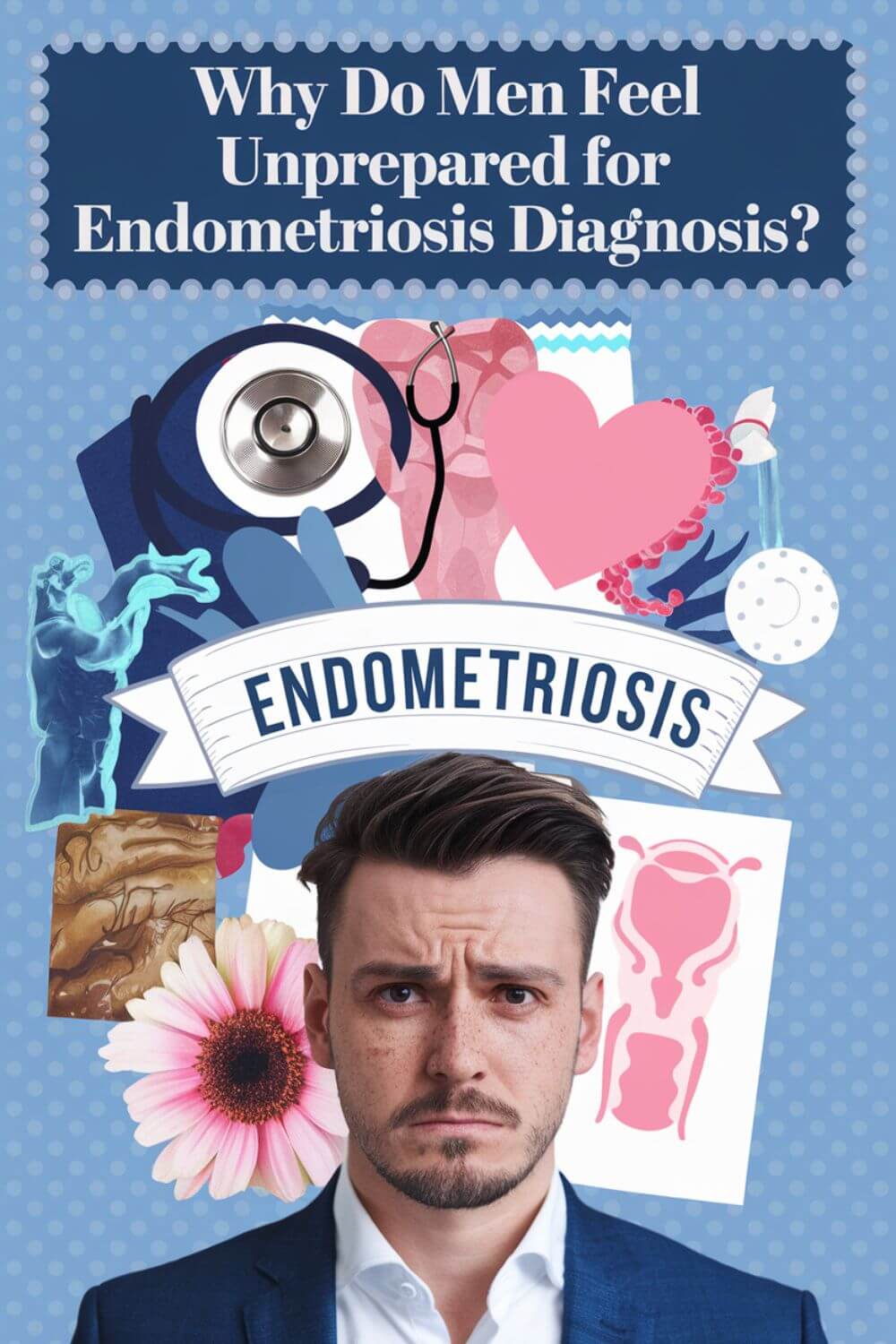
Practical Tips for Navigating Endometriosis
- Go to medical appointments with your partner and talk with doctors.
- Learn about endometriosis, its symptoms, and treatments.
- Help with household chores and care for your partner.
- Speak up for your partner’s needs in healthcare and daily life.
- Keep talking openly and honestly with your partner.
By combining emotional support and practical tips, men can support their partners through endometriosis. This care, understanding, and resilience help them face the challenges together.
The Role of Healthcare Providers
Healthcare providers are key in helping women with endometriosis and their partners. They must communicate well, focus on the patient, and include partners in decisions. This teamwork helps couples face endometriosis together.
It’s important to teach patients and their partners about endometriosis. Studies have shown that in New Zealand, it takes almost 9 years to get diagnosed. This is often because doctors don’t take symptoms seriously. Providers need to quickly spot and treat endometriosis to cut down on delays.
Being kind and understanding is also vital. Research suggests that patients who felt heard got diagnosed faster than those who didn’t. Doctors should listen with empathy and offer support and resources.
By talking openly and involving partners, healthcare providers can help couples deal with endometriosis. This approach, based on patient-centered care, can lead to better results and improved well-being.
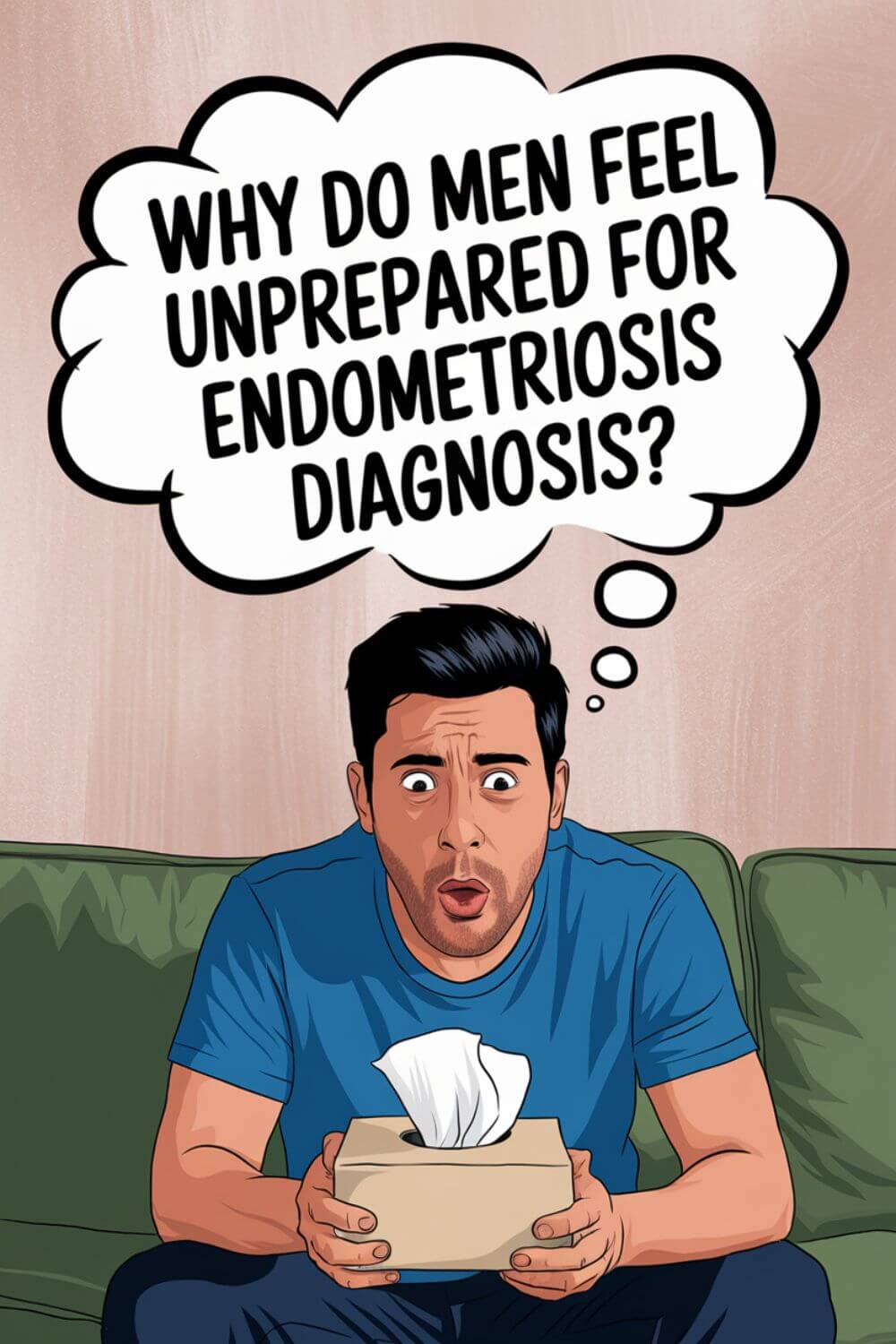
Endometriosis and Infertility
Endometriosis is a chronic condition that affects fertility. It causes distress for women and their partners when planning a family. Knowing how endometriosis and infertility are linked is key to managing hopes and finding treatments.
Understanding the Connection
Endometriosis can harm the uterus, ovaries, and fallopian tubes. This damage makes it hard for women to get pregnant. The severity of the condition affects how likely infertility is.
Women with endometriosis often face infertility, more so with severe cases. They are also at higher risk for miscarriage and other pregnancy complications.
Managing Expectations
For couples facing infertility due to endometriosis, setting realistic goals is vital. The chance of getting pregnant depends on the disease’s stage, the woman’s age, and the treatment. Early-stage endometriosis might respond to medication or IUI, but more severe cases might need IVF.
Healthcare providers should talk about the link between endometriosis and infertility. They should explain treatment options and offer support. The Worry Head website has resources for men supporting their partners with endometriosis, including infertility management.
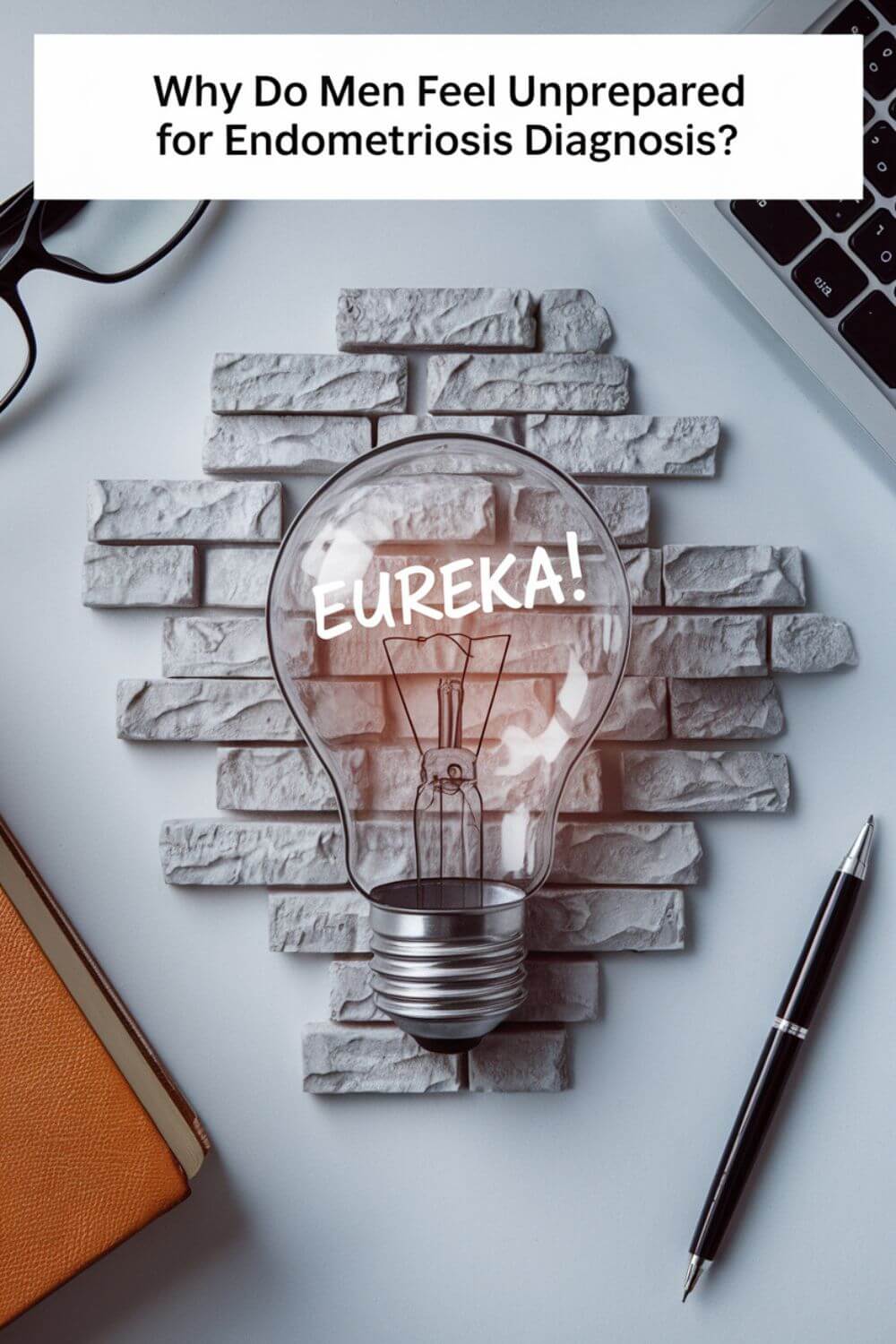
The Power of Support Groups
Dealing with endometriosis can feel lonely, but you’re not alone. Joining support groups, in-person or online, is a great way to get help. These peer support groups are places where people can share their stories, get advice, and find others who get it.
For men, these groups are a chance to learn from others, share coping strategies, and feel understood. Being part of these communities can make you feel less alone. It helps couples face endometriosis together, feeling supported.
Support groups are more than just a place to talk. They can change lives by giving strength, resilience, and practical tips. Men can learn a lot about endometriosis, how to support their partners better, and find new ways to handle challenges.
Choosing to join a support group, whether in-person or online, is a big step. It opens the door to a place where you can share your story, get empathy, and find inspiration from others who have been through similar things.
Remember, you don’t have to face endometriosis alone. The community of support groups is here to help you and your partner. Together, you can find the strength and resources needed to thrive, even with endometriosis.
| Benefits of Joining an Endometriosis Support Group | Key Takeaways |
|---|---|
|
|
Breaking the Stigma
Endometriosis is often misunderstood, leading to a lot of stigma. Many people don’t get what it’s all about. This endometriosis stigma makes things even harder for those who have it and their partners. We need to change these societal perceptions and spread more understanding to fight this stigma.

Challenging Societal Norms and Promoting Understanding
We can start by pushing for more research and education. This will help people understand what it’s like to live with endometriosis. Talking openly about menstrual health and endometriosis can also help create a more supportive community.
Our aim is to make society more caring and understanding towards those with endometriosis. By fighting the stigma and spreading awareness, we can help those affected get the care and support they need.
Together, we can change the future. We want endometriosis to be seen as a real health issue that deserves care and support, not something to be ashamed of.
Endo-Tool: Endometriosis for Men
Being a partner of someone with endometriosis can be tough. That’s why I wrote “Endo-Tool: Endometriosis for Men”. It’s a guide for men to support their loved ones better. My wife, who has endometriosis, and I coauthored it. It offers insights and strategies for the emotional, physical, and relational sides of this journey.
The book covers many topics, including:
- Understanding the complexities of endometriosis and its impact
- Providing emotional support and managing the emotional burden
- Communicating effectively and advocating for better healthcare
- Coping with the practical and lifestyle changes that accompany the condition
- Strengthening relationships and finding ways to support your partner
Whether you’re new to endometriosis or have been supporting a loved one for years, this book is a must-read. You can buy “Endo-Tool: Endometriosis for Men” from my shop. Or, sign up for a free chapter to see what it offers.
By giving men the knowledge to support their partners with endometriosis, we can face this challenge together. This improves the quality of life for those affected. I encourage you to explore this resource and support your partner’s journey.
| Key Insights from the “Endo-Tool: Endometriosis for Men” Book |
|---|
|
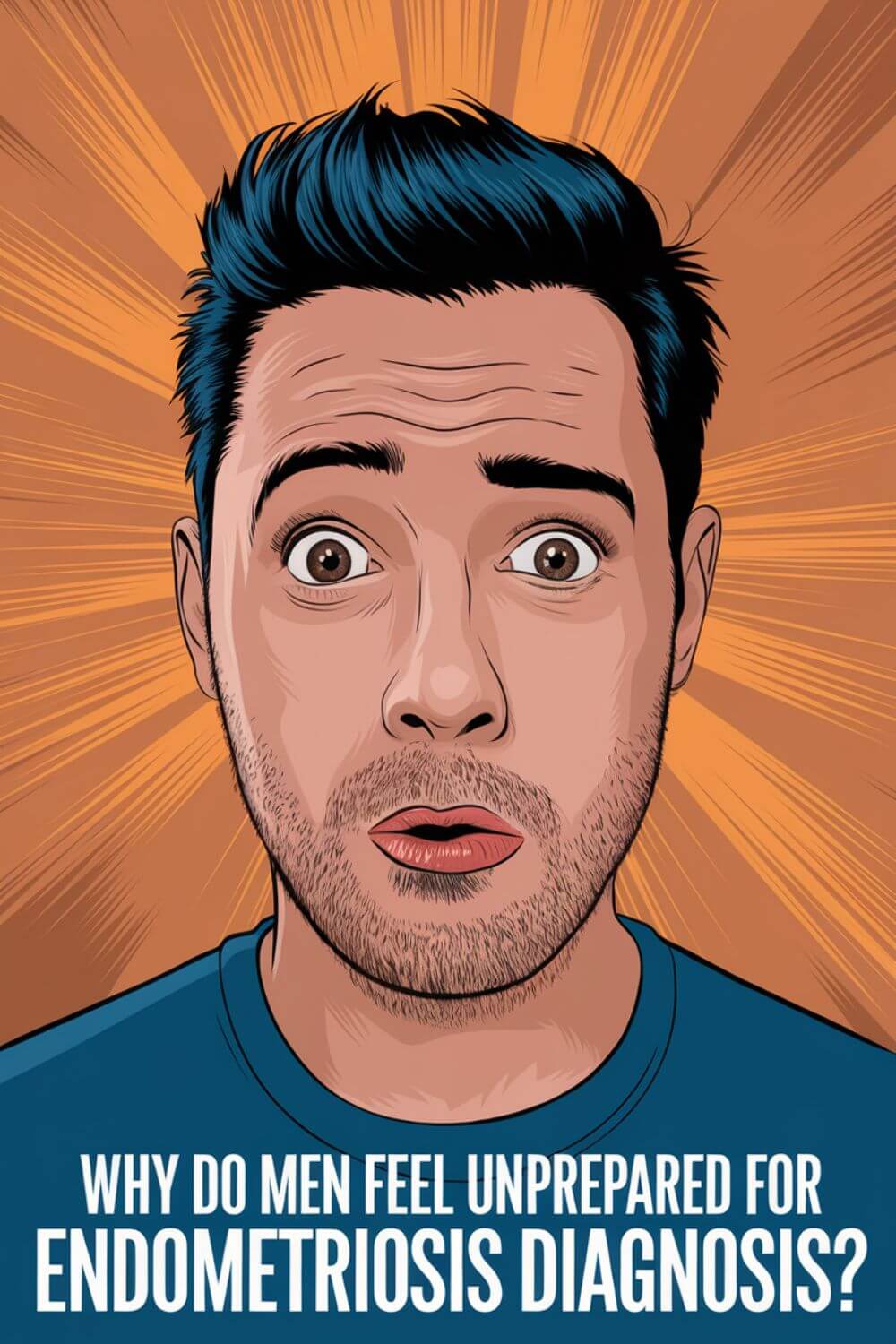
Moving Forward Together
Dealing with endometriosis needs teamwork between women and their male partners. They must understand the condition together. This way, they can find ways to handle its challenges.
Healthcare providers, support groups, and educational programs help a lot. They give men the knowledge to support their partners better.
Women and their partners can grow stronger together. They need to be patient and willing to learn. This way, they can tackle the condition’s physical, emotional, and practical sides.
The journey ahead is tough, but couples can come out stronger. With the right support, they can manage their endometriosis and live a better life.


About Me
Hi, I’m Lucjan! The reason why I decided to create this blog was my beautiful wife, who experienced a lot of pain in life, but also the lack of information about endometriosis and fibromyalgia for men…
Source Links to Why Men Feel Unprepared for Endometriosis Diagnosis
- https://www.ncbi.nlm.nih.gov/pmc/articles/PMC3013503/
- https://www.ncbi.nlm.nih.gov/pmc/articles/PMC10021325/
- https://www.ncbi.nlm.nih.gov/pmc/articles/PMC10341228/
- https://www.endometriosis-uk.org/endometriosis-and-couples
- https://academicarchive.snhu.edu/bitstreams/f75b2b2a-166f-43c8-a625-1628739e473a/download
- https://www.endofound.org/back-to-the-roots-robert-taylor
- https://icarebetter.com/category/endometriosis-2/
- https://www.scielo.br/j/csc/a/cGCxnN5cYP4X4w5L7vSFq6c/?lang=en&format=pdf
- https://elischolar.library.yale.edu/cgi/viewcontent.cgi?article=1141&context=ymtdl
- https://www.ncbi.nlm.nih.gov/pmc/articles/PMC10649844/
- https://thewalrus.ca/why-does-the-medical-system-keep-failing-people-with-endometriosis/
- https://www.frontiersin.org/journals/medicine/articles/10.3389/fmed.2023.1185769/full
- https://pmc.ncbi.nlm.nih.gov/articles/PMC10341228/
- https://www.mireproductivemedicine.com/infertility-endometriosis/
- https://www.natracare.com/blog/how-to-get-endometriosis-support/
- https://www.healthline.com/health/endometriosis/should-you-try-a-special-diet
- https://www.ncbi.nlm.nih.gov/pmc/articles/PMC10267318/
- https://www.nytimes.com/2023/02/01/magazine/menopause-hot-flashes-hormone-therapy.html
- https://www.ncbi.nlm.nih.gov/pmc/articles/PMC10688096/
- https://www.ncbi.nlm.nih.gov/pmc/articles/PMC10660601/
- https://www.brighamandwomens.org/obgyn/infertility-reproductive-surgery/endometriosis/endometriosis-and-fertility
- https://www.mdpi.com/1660-4601/20/13/6209
- https://plan-uk.org/file/plan-uk-break-the-barriers-report-032018pdf/download?token=Fs-HYP3v
- https://www.roche.com/xproject/xaction/all-stories
- https://www.asrm.org/news-and-events/podcasts/fertility-and-sterility-on-air/fns-unplugged-oct-2024/
- https://endometriosistreatmentcenternyc.com/
- https://theclaraclinic.com/blog-home/my-story-with-endometriosis-part-2
- https://bocafertility.com/understanding-infertility/endometriosis/
